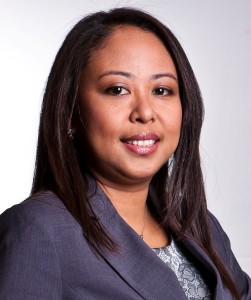
Anne Mariae Celeste V. Jumadla
Sapalo Velez Bundang & Bulilan
Trademark registration is based on ownership, and only the owner of the mark is entitled to register it. This has been the view of the Philippine Supreme Court in numerous cases.
In its most recent decision, the Supreme Court upheld the registration of Harvard University for its ‘Harvard Veritas Shield Symbol’ against a cancellation proceeding by Fredco Manufacturing Corporation, successor-in-interest of New York Garments (NYG), the first user of the ‘Harvard’ trademark in the Philippines for class 25 goods, i.e. t-shirts, polo shirts, etc.
Fredco’s ‘Harvard’
NYG registered Harvard for class 25 goods in 1985 and was granted a certificate in 1988. However, this registration was cancelled in 1998 for failure to file the affidavit of use. Therefore, at the time Fredco filed the petition for cancellation in 2005, its interest in the Harvard mark was solely as a prior user in the Philippines, and not as a registrant.
Under the Intellectual Property Code of the Philippines, prior use of a mark cannot bar its registration by the true owner. A prior user in good faith is merely exempted from liability for continued use of a mark prior to its registration by another.
In this case, Fredco (or NYG) was not a prior user in good faith.
NYG started using ‘Harvard’ in the Philippines in 1982, or years after Harvard University first adopted ‘Harvard’ in 1639, to name the college after its then benefactor John Harvard, and years after Harvard University started using it in commerce in the United States in 1872.
At the time NYG filed its trademark application in 1985, Harvard University had, since 1953, been using Harvard and the Harvard Veritas Shield Symbol for class 25 goods in the United States.
In addition, Fredco used the website www.harvard-usa.com, with a main page showing an oblong logo bearing ‘Harvard Jeans USAÒ’, ‘Established 1936’ and ‘Cambridge, Massachusetts’, notwithstanding that it had no connection with Harvard University or Cambridge, Massachusetts; nor was it (nor NYG) established in 1936 or in the US.
Clearly, Fredco was falsely suggesting that its goods are connected with Harvard University.
To the court, Fredco’s trademark application should not have been allowed. Section 4(a) of RA No. 166, the trademark law in force then, prohibits the registration of a mark falsely suggesting connection with institutions.
